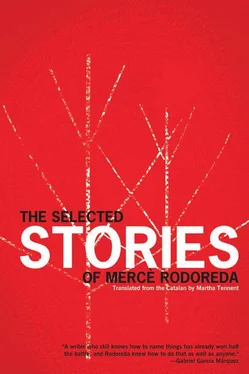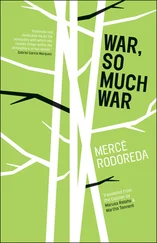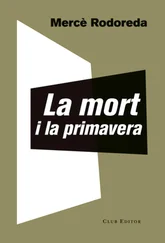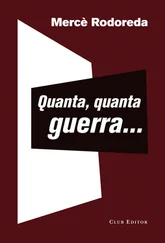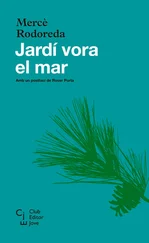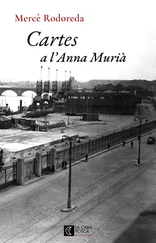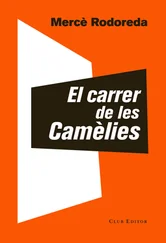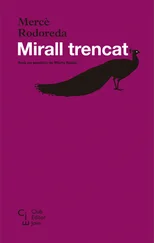She unfolded the paper. “Yes, I’ll marry you.” She had written it because she was speechless when he asked her if she wanted to be his wife.
As she removed the papers from his wallet, she sensed that he was calmer. Then she put everything back in its place and handed it to him with a smile.
“This is what we have to do, always.” he said, slipping the wallet into his pocket. “There can’t be any secrets between you and me. Ever. We’ll be like brother and sister.”
They left the café, both feeling a bit strange, out of place. The air was cool, clean, filled with colors.
“And after we’ve been married for years, what if you fall in love with another woman?”
“Hush.”
She squeezed his arm tenderly, but she wanted to weep. Houses, trees, streets — everything seemed false and useless.
It was the last day. The very last.
She was wearing a pale blue dress with a wide-brimmed hat, its black velvet ribbons dangling down to the middle of her back. Most of all I remember the velvet bow and the color of her dress, because that is what I saw last. That blue: a sky blue. Sometimes in summer the sky takes on a blue like her dress, a gray, sun-gorged blue. On scorching summer days, a blue as bitter as gentian.
The blue dress. Her eyes with the tiny pupils that were black like the velvet bow, her mouth — all milk and roses — her hands. All of it, the shape and the color, was a challenge, an insult to my propriety . “There are sad loves and happy loves. Ours is sad,” she told me one day long ago with a gray, monotonous voice. It hurt so much that I couldn’t put it out of my mind. “Why sad?” “Because you’re a proper man.” We hadn’t seen each other for eight days, because I had accompanied my sick wife to a village in the mountains, for her to convalesce. A proper man. This man, who lived for a simple gesture from her. Everything about her, everything that came to me from her filled me with emotion.
I can still see the canvas awning at the café that morning (orange with a fringe that flapped in the wind), the bushes by the sidewalk, the notice on the mirror about the soccer match. I can hear her deep, cold voice. “I’m getting married.” She had lowered her head, and the brim of her hat concealed her face. I could see only her lips and her nervously trembling chin. And the toxic blue of her dress.
Everything around me, everything within me felt empty. It was as if I lived in a shadowless, echoless cavern. It was a terrible period of inescapable magic. All the things that might have seemed a signal, might have engendered hope, had suddenly vanished, as if an invisible hand had snatched them away. They had ceased to be.
But at the age of forty, nothing ceases. No. Nothing ends. The child that I wanted was born and will live when I am dead. The last child. A pale child, light as a bouquet of flowers. When Albert went to peek at her, his Latin book under his arm, his mother asked: “Aren’t you pleased to have a little sister?” He looked at the baby with curiosity and disdain, knitted his brow, pouted his arched lips, then left without a word, closing the door without a sound. The last child. I had wished for it darkly, from the depths of my loneliness, hoping to alleviate it, as if I might revive the sweetness that had died, preserve it within a being that was marked and still faltering.
We celebrated her first birthday today. She’s beginning to walk but needs to grasp onto the furniture, the wall. If she has to take a few steps alone to get from one chair to another, she looks around anxiously and bursts into tears. I requested that a blue dress be made for her. I picked her up for a moment, and she laughed, making little cries of joy like a bird. I have concentrated all my tenderness in this little ball of warm flesh, in these tiny hands and feet. It is a bitter tenderness. When the child looked at me with sudden attention and curiosity, I had to close my eyes. Her shiny, black pupils are surrounded by a sky-blue shadow.
I had an impetuous desire to write to her. “Just to have a glimpse of you. If only to see you pass. If you would wear the blue dress, the dress you wore that last day.” I tore the letter into a thousand pieces. I know she asked about me. She would have used that neutral voice of hers: “Ah, so he’s had a daughter?” If I could only explain to her. . “I’m getting married.” If I had only been able to say: “I don’t want you to.” Her words cast me into a void, left me spinning, falling. “Gracious, you’re young!” Her youth frightened me so. Since the child was born, my son looks at me as if he were trying to understand me. I sense him smiling harshly.
I haven’t been able to sleep all night, and now my head is splitting. I got up to open the window and came back to bed. Slowly the dark room filled with starlight. I felt cold and pulled the duvet over me. The wind brushed the leaves on the lemon tree against the glass. “She’s in Algeria,” I was told yesterday afternoon. “She left two months ago.” All night I imagined the sea and the ship. I couldn’t rid myself of the image of the sea, the ship rocking back and forth like the leaves on the lemon tree. When it was almost day, I went to my daughter’s room and lifted her frantically. She grumbled but didn’t wake. I held her in my arms for a long time. Slowly the daylight returned the shape and color to objects. I clasped that tiny bit of flesh with its beating heart. I must have hurt her, for suddenly she started crying. “What is it?” My wife rushed in anxiously, tying the sash on her dressing gown. “Has she been crying long?” Then she glanced at me: “If you could only see how ill you look! What’s wrong?” “Nothing,” I said. “Nothing’s the matter. Don’t look at me like that. I assure you, it’s nothing at all. Don’t give me that look.” Never, not even on the worst day of those eighteen years, had I wished so furiously to die.
“What’s this soup made of?”
“No way of knowing. . The cook probably doesn’t even know.”
The waitress had just finished filling two bowls with a yellowish liquid: small pieces of green leaves were floating in it. They had left the suitcase sitting on the floor, beside the table. A dog went over to it, smelled it calmly, and moved away to the next table, where an old lady wearing a brown hat with a pheasant feather was holding out a fish bone.
“Don’t look at me, eat.”
He obeyed and put his spoon in the bowl. A moment later he raised his eyes and looked at her for a while.
“What do you plan to do?”
She wiped her lips, hesitated a moment, then answered:
“I don’t know.”
“I hate for you to leave like this, not knowing what you’re going to do.”
“Better not to think about it,” she said in a very low voice, looking down at the bowl.
“Yes, I do, I hate it.”
“Eat.”
The restaurant at the train station was full. The waitresses hurried up and down with little notebooks stuck in their apron pockets, pencils hanging by little metal chains from their waists. Theirs had dark hair. She must have been about forty years old, forty withered years. You could see she was tired and in a bad mood. She wore a lot of eye makeup.
From time to time he glanced at his watch: still three quarters of an hour before the train left.
“Say something.”
The waitress took the bowls and set the plate down. A warm china plate. She served them a piece of boiled hake, covered with mayonnaise, with two or three lettuce leaves.
“Say whatever you like, just say something.”
The waitress came back.
“Excuse me, I forgot to serve you the asparagus.” She gave them half a dozen, placing them beside the piece of hake.
Читать дальше
